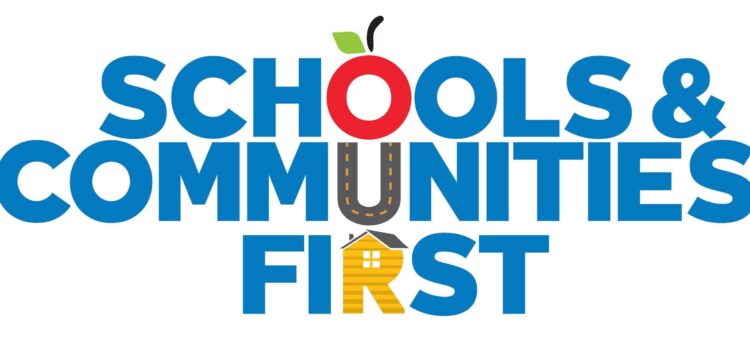
Jess Contreras is the Civic Engagement Manager for the Dolores Huerta Foundation. She has worked with the Foundation for six years.
Her work with the DHF focuses on civic engagement and engaging voters through outreach campaigns. The work is nonpartisan, and has goals of passing legislation that benefits low-income families and communities.
Contreras is leading the Schools and Communities First campaign. Kern Sol News sat down with her to learn more about the initiative and how it could benefit Kern County.
The conversation has been edited for length and clarity.

Q: What is Schools and Communities First initiative?
A: Schools and Communities First is a measure that will appear on the 2020 election ballot. It will reclaim $12 Billion every year for California schools and critical services by closing commercial property tax loopholes that benefit a fraction of corporations and wealthy investors.
Q: What should voters know about this initiative?
A: Why is Schools and Communities First so important? For decades many wealthy investors and big corporations have not been paying their fair share (of taxes). That’s causing California schools’ funding to fall behind. California now has the most overcrowded classrooms in the United States and some of the worst ratios of counselors, librarians, and nurses per student. Meanwhile, our local communities are not on the frontlines to big challenges like fire safety, housing, and healthcare without the needed resources. It’s very important. We need to get it. We need to collect a million signatures to put this initiative on the 2020 ballot, and we need voters to vote on this. This has been in the making for over 40 years. These big corporations have been robbing our communities for decades.
Q: How role is the Dolores Huerta Foundation playing with Schools and Communities First?
A: I know this is a 40-year long battle. I’ve been here since 2014. I know the Dolores Huerta Foundation has been working on this prior. I can speak from 2014 and on, so as far as I can remember they have been involved since 2014. And that’s by making the corporations pay their fair share in commercial property taxes and to bring more revenue back into our low-income schools.
Q: Does the money have to go to specific services? If so, which services?
A: Roughly 40 percent of the funds will go to education, including K-12 and community colleges. And 60 percent will go to local communities that include counties, cities, and special districts. The money is for your local community, so it depends on what the current issue is of that community. When the money comes in, it holds folks accountable. The initiative requires public reporting on how the funds are distributed and spent. Then, the public can hold their elected officials accountable, so it’ll go into the means that the community wants it to go to. For example, in Arvin there is a big need for water. If you want to, as a community, spend it to benefit drinking water and resources, it’s up to us to make sure that the funding goes there.
Q: What impact do you hope to see this initiative have on Kern County?
A: Kern County has a lot of low-income schools, so I want to see it going to the Local Control Funding Formula. I hope is also serves our foster youth and our English learners. That’s what Schools and Communities first will do. It’ll give a funding baseline to all the schools, but it will also benefit those schools that need it more to benefit our students.
Kern Sol News is a youth-led journalism organization in Kern County. In their stories, reporters shine light on health and racial disparities in under-served communities across Kern. For more stories by South Kern Sol, head to southkernsol.org.